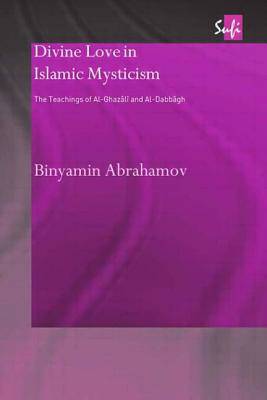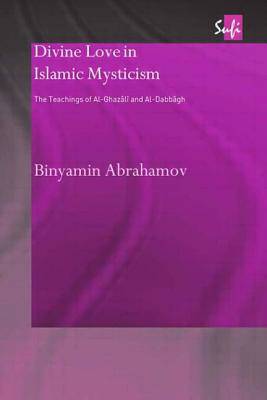
Je cadeautjes zeker op tijd in huis hebben voor de feestdagen? Kom langs in onze winkels en vind het perfecte geschenk!
- Afhalen na 1 uur in een winkel met voorraad
- Gratis thuislevering in België vanaf € 30
- Ruim aanbod met 7 miljoen producten
Je cadeautjes zeker op tijd in huis hebben voor de feestdagen? Kom langs in onze winkels en vind het perfecte geschenk!
- Afhalen na 1 uur in een winkel met voorraad
- Gratis thuislevering in België vanaf € 30
- Ruim aanbod met 7 miljoen producten
Zoeken
€ 111,45
+ 222 punten
Uitvoering
Omschrijving
The two theories of divine love that are examined in this book have their foundations in Greek, Jewish, Christian and Muslim ideas. Al-Ghazâlî (twelfth century) was influenced mainly by Plato and Ibn Sina's teachings, while al-Dabbâgh (thirteenth century), who accepted some Ghazâlîan notions, developed a theory of divine love that can be traced back to Neoplatonism. Both scholars created complete theories of divine love that include definitions of love, its causes and signs, the ways to love God, God's love for man, and kinds of love. The book will interest students of theology, philosophy and mysticism in general, and students of Islam in particular.
Specificaties
Betrokkenen
- Auteur(s):
- Uitgeverij:
Inhoud
- Aantal bladzijden:
- 208
- Taal:
- Engels
- Reeks:
Eigenschappen
- Productcode (EAN):
- 9780415664691
- Verschijningsdatum:
- 14/03/2011
- Uitvoering:
- Paperback
- Formaat:
- Trade paperback (VS)
- Afmetingen:
- 140 mm x 216 mm
- Gewicht:
- 240 g

Alleen bij Standaard Boekhandel
+ 222 punten op je klantenkaart van Standaard Boekhandel
Beoordelingen
We publiceren alleen reviews die voldoen aan de voorwaarden voor reviews. Bekijk onze voorwaarden voor reviews.









